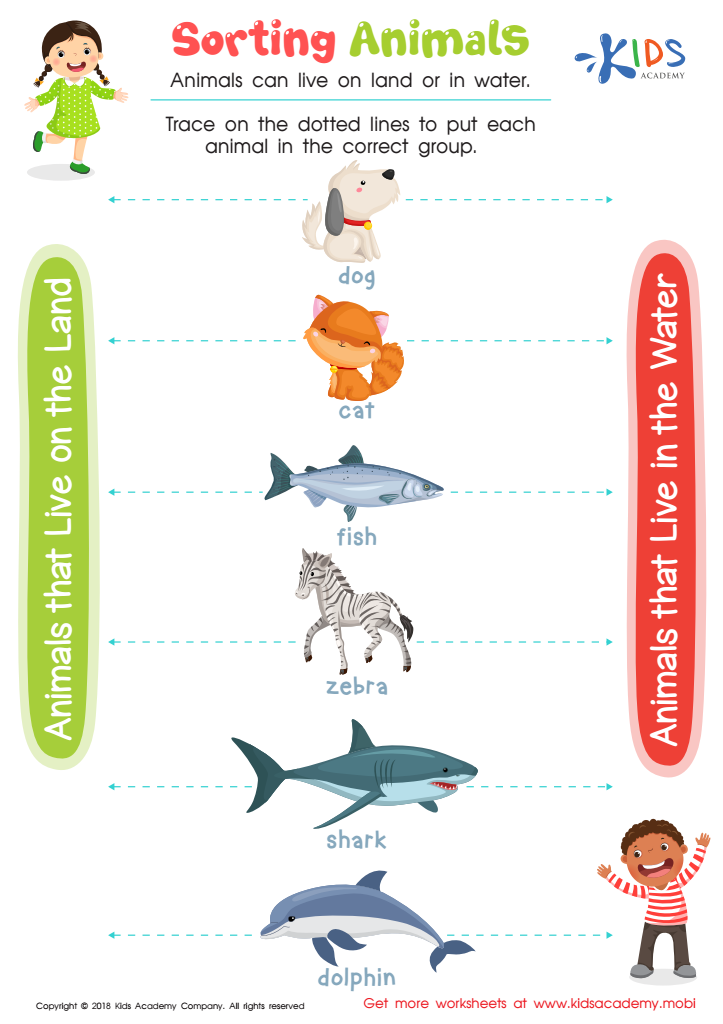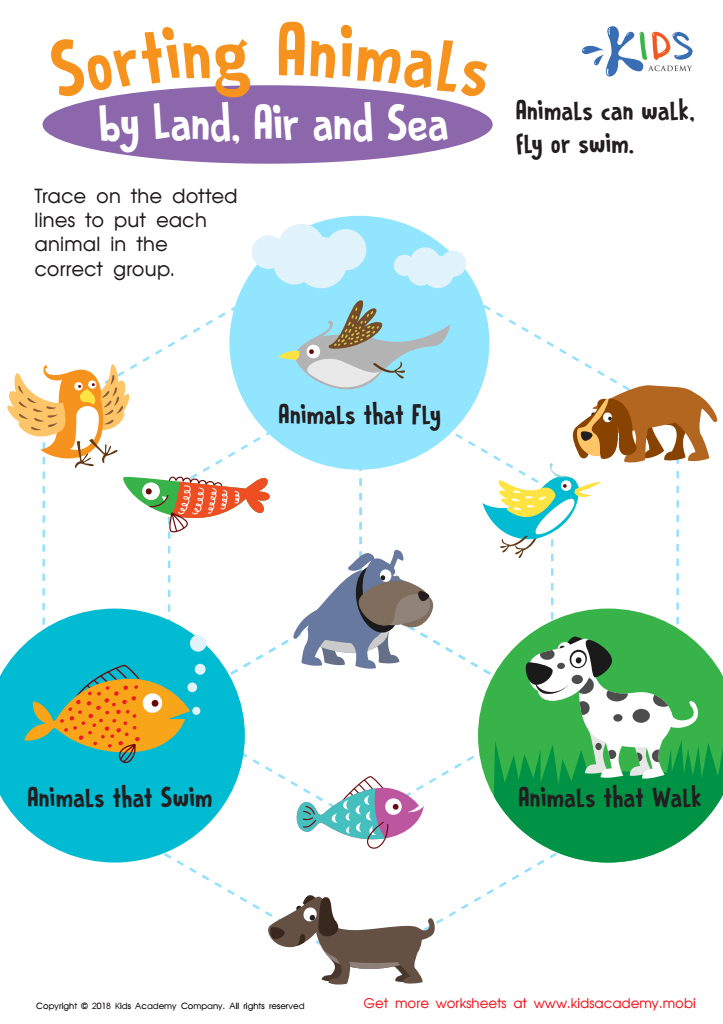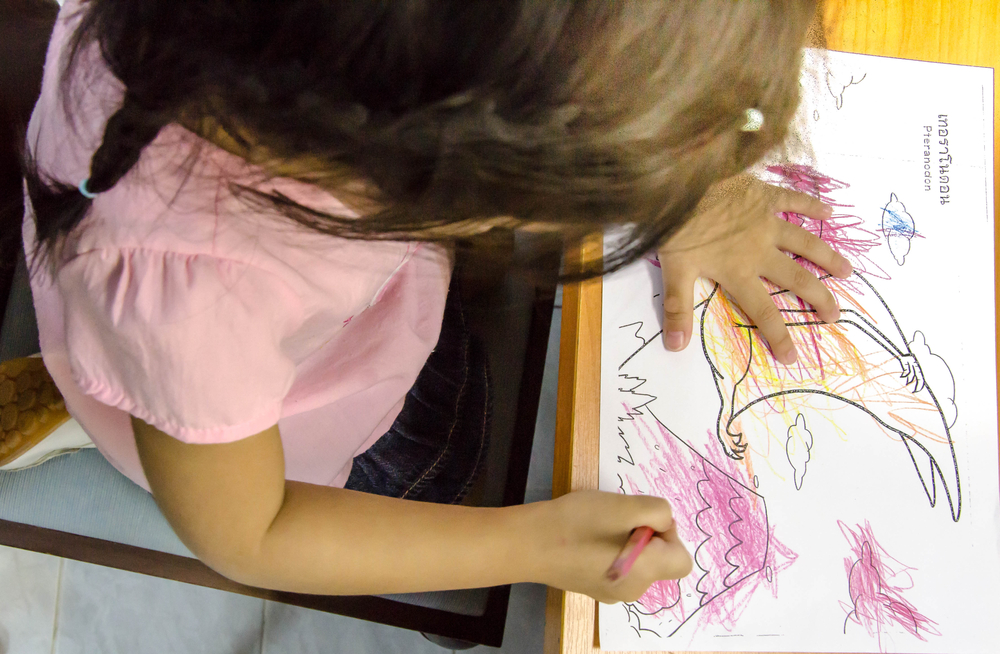Understanding habitats Normal Science Worksheets
4 filtered results
-
From - To
Explore the vibrant world of nature with our "Understanding Habitats Normal Science Worksheets" designed for early learners! These engaging worksheets introduce children to various habitats, from lush forests to arid deserts, fostering a deep appreciation for biodiversity. Each activity promotes critical thinking and observation skills, allowing students to categorize plants and animals, comprehend ecosystems, and recognize the importance of conservation. Ideal for home or classroom use, these worksheets are visually appealing and tailored to suit different learning styles. Dive into the adventure of learning about habitats and watch your students connect with the environment in a fun and interactive way!


Sorting Animals Worksheet


Space: Assessment 1 Worksheet


Sorting Animals by Land, Air and Sea Worksheet


Animals and Plants: Assessment 2 Worksheet
Understanding habitats is vital for parents and teachers as it lays the foundation for children’s knowledge of the natural world, instilling a respect for the environment and its diverse ecosystems. Learning about habitats encourages curiosity and critical thinking, enabling students to explore different living conditions for various species and their interdependence. This topic also fosters empathy, as children learn to appreciate the intricate relationships between organisms and their environments.
Moreover, teaching about habitats aligns with broader educational standards in science, supporting hands-on learning and interdisciplinary connections across subjects such as geography and social studies. It equips children with scientific literacy, helping them to analyze issues like habitat destruction and climate change, which are pressing global challenges.
Furthermore, discussions about habitats can lead to community engagement, encouraging families to participate in nature walks, conservation projects, or local environmental organizations, thereby strengthening community ties. By understanding habitats, children develop a sense of stewardship toward the planet, ensuring that they grow into informed, responsible adults committed to preserving nature for future generations. Ultimately, this foundational knowledge empowers students to become proactive, environmentally-conscious citizens, contributing positively to society's efforts in sustainability.
 Assign to My Students
Assign to My Students



















